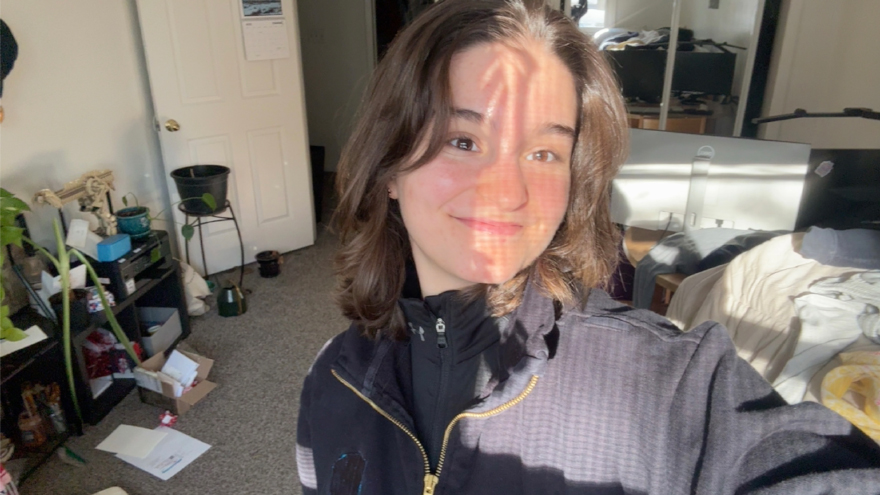
The Charger Blog
Charger Blogger Enters Final Semester with Excitement and a Plan
Beatrice Glaviano ’26 reflects on EMT life, learning assistant work, and what she hopes to carry into her final semester.
The Charger Blog
As part of a recent Advocacy Day event, several undergraduate and graduate students in the University’s School of Health Sciences met with representatives of congressional leaders, sharing their own stories and urging them to support important legislation for the eating disorders community.
June 3, 2022
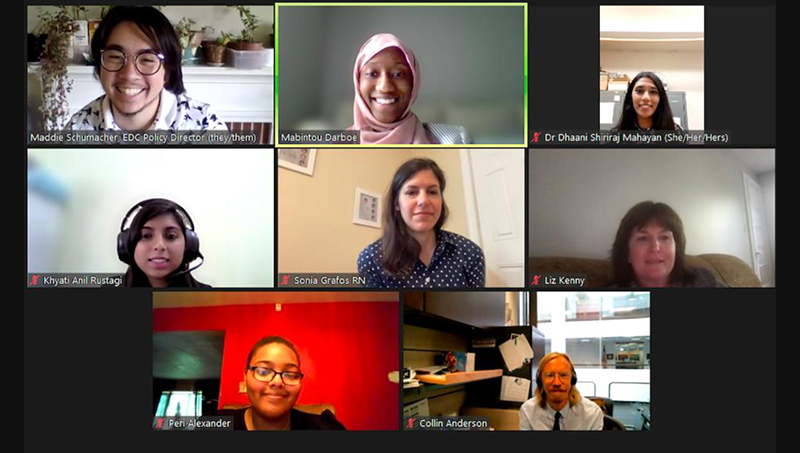
As part of Eating Disorders Coalition’s recent Annual Advocacy Day, several members of the University’s School of Health Sciences met with representatives of Connecticut’s federal delegation, urging them to support important legislation that aims to enhance treatment of eating disorders and foster mental health.
The virtual event enabled nearly 200 advocates from more than 30 states to share their personal stories and to urge their congressional leaders to support two pieces of legislation: The Anna Westin Legacy Act, which would authorize the Center of Excellence for Eating Disorders to continue training primary health professions on eating disorders screening, brief intervention, and referral to treatment (SBIRT); and The Kids Online Safety Act, which would hold big tech companies accountable to protect users under 18 from social media harms.
Through the University’s WeEmbody Lab and under the mentorship of Alvin Tran, Sc.D., MPH, an assistant professor of public health who leads WE Lab, the students gained important advocacy experience while making a meaningful difference. Below, several students reflect on their experience.
Advocating for the work of the Society for Public Health Education (SOPHE) is always an enriching experience. It’s fun to get together with my peers from the We Embody Lab (WE Lab), created and led by Dr. Alvin Tran, and other folks who share the same love for advocating for our community as much as we do.
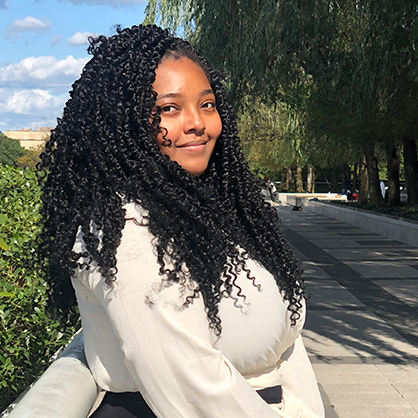
The experience was fun, and it went smoothly. We met online via Zoom with representatives of U.S. Senators Chris Murphy and Richard Blumenthal. The two legislative goals for this year’s Eating Disorders Coalition Advocacy Day were to increase the number of co-sponsors for the Kids Online Safety Act, urging the Senate Commerce Committee to advance the legislation, and encouraging U.S. representatives to become original co-sponsors and introduce the legislation in the House of Representatives.
The second focus was the Anna Westin Legacy Act, which urges members of Congress to include this legislation in the CURES 2.0 mental health package. This legislation would help children and adults with eating disorders and give them the support they need to get better.
Talking to the lawmakers is always fun and inspiring. They always welcome us and are empathetic to the stories the advocates share and even share some of their own as well. They also give great advice and appreciate us for our advocacy, especially as busy college students.
Advocating is something I enjoy doing. I think every University of New Haven student should try it, especially if they love helping their community. The difference we are making in people’s lives have a huge impact, and I take lots of pride and joy in doing it.
As part of the WeEmbody Lab fellowship, I was privileged to partake in the Eating Disorder Coalition’s Advocacy Day. In preparation, we had a meeting with author and advocate Chevese Turner, and we went through an EDC advocacy training. We met with many offices, including U.S. Representatives Jim Himes, John Larson, and Joe Courtney, as well as U.S. Senators Chris Murphy and Richard Blumenthal.
Our goal was to urge Connecticut’s congressional leaders to support the Anna Westin Legacy Act (H.R. 7249/S. 3686) and the Kids Online Safety Act (S.3663). My team was led by Maddie Schumacher, the director of policy at the Eating Disorders Coalition. We explained what the different bills would mean in the eating disorder community, as well as why these bills are so critical.
As part of the explanation of how important these bills are, my colleagues and I shared our experience with eating disorders and addressed the many common misconceptions that are associated with eating disorders. Some of the main misconceptions we addressed were that eating disorders can affect a person no matter their background. We also discussed how severe eating disorders can be and that they are more than just people not wanting to gain weight.

Eating disorders such as anorexia nervosa can make it so that you physically cannot make yourself swallow. We described how no one would willingly put themselves through an eating disorder, and how it can cause so much physical stress and pain in the body – including muscle deterioration, bones becoming brittle, and many more adverse physical effects.
Eating disorders can be completely treatable, especially if diagnosed before they become severe. However, in many cases, eating disorders are not diagnosed as soon as they should be because many doctors do not recognize the signs of the eating disorders. This is because only six percent of medical schools require eating disorder training.
The Anna Westin Legacy Act will help not only provide training for doctors on eating disorders, but it will also help expand the evidence-based treatment plan Screening, Brief Intervention, and Referral to Treatment (SBIRT) to pediatric care. The Kids Online Safety Act will help protect those under 18 from the harm social media can cause in relation to eating disorders by allowing access to safeguard options and holding big tech companies financially accountable for contributing to eating disorders.
One of the biggest takeaways from my experience with the WeEmbody Lab is that anyone can make a difference just by advocating. I urge everyone who is interested in making a difference to speak up, to write to their congressional leaders, and to just get involved.
We recently had the opportunity to participate in the Eating Disorder Coalition (EDC) Advocacy Day, and we got to meet with five staff members of the U.S. senators and representatives. It was a great experience, and we just found out that the Anna Westin Legacy Act was passed on the House floor!
We briefly discussed the Anna Westin Legacy Act, which would reauthorize the Center of Excellence for Eating Disorders to continue training primary healthcare professionals on eating disorders through Screening, Brief Intervention, and Referral to Treatment (SBIRT). It also expands the evidence-based SBIRT protocol to the pediatric level.
Another bill we advocated for was the Kids Online Safety Act, a bipartisan bill led by U.S. Senators Richard Blumenthal (D-CT) and Marsha Blackburn (R-TN) to protect children's mental health and safety online. It would also hold big tech accountable through fines to protect users under 18 from social media harms, especially with regard to mental health, suicide prevention, and eating disorders. More so, it will also allow scientists access to the data from social media companies to conduct research for public benefit.
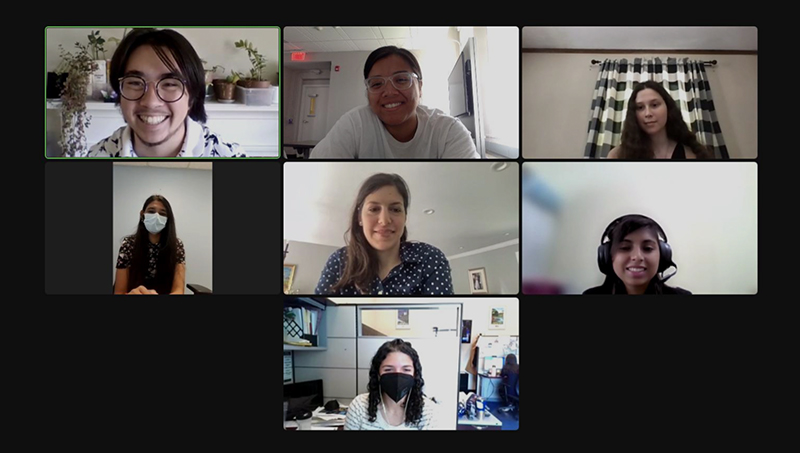
Going into the lobby meeting, I knew eating disorders were harmful and often fatal, especially anorexia nervosa. What I didn't know was how few medical schools require their students to learn how to diagnose and treat patients with disordered eating habits.
As a future physician, I am honored to have advocated for a bill that would make it easier for me and thousands of doctors to provide our patients with the care they need. I look forward to being a champion for eating disorders as a medical student and physician.
Recently, the nation has witnessed a severe health crisis in the form of eating disorders among teens and adults. For me, participating in this advocacy program was an eye-opener, as I was unaware of its high prevalence.
While I have advocated in the past for various causes, participating again was an amazing experience. The most important thing I learned was that our personal stories and experiences do matter when we discuss and meet about such issues with representatives from our government.
I would once again like to thank Dr. Alvin Tran, our mentor, for this wonderful opportunity, as advocacy summits like these have allowed me to sharpen my skills and strengthen my will to work for the betterment of communities.
Peri Alexander ’23 and Jillian Freeto ’25 are health sciences majors. Selena Chom ’21, ’23 MPH, Dhaani Dhaani '23 MPH, and Khyati Rustagi ’23 MPH are candidates in the University’s Master of Public Health program. Mabintou Darboe ‘22 MPH is a recent graduate of the Master of Public Health program.

The Charger Blog
Beatrice Glaviano ’26 reflects on EMT life, learning assistant work, and what she hopes to carry into her final semester.
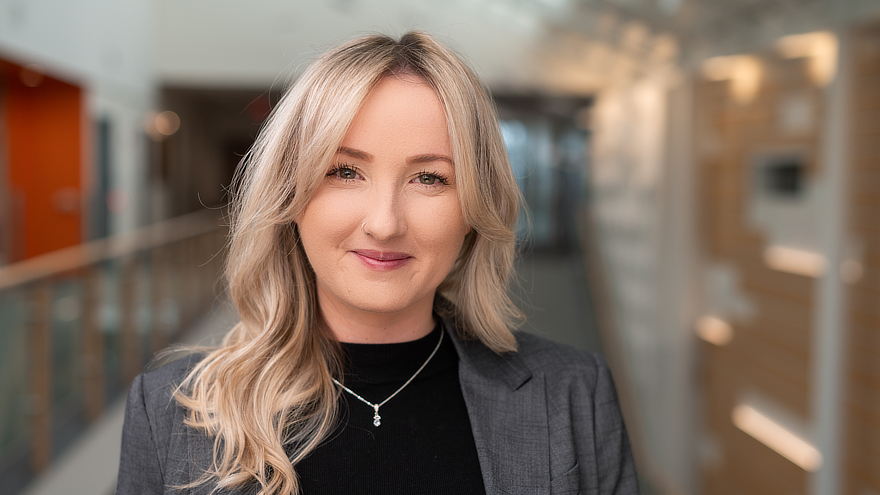
The Charger Blog
Katelyn Beach ’25, ’26 MBA reflects on her hands-in collaboration with the program’s founder and how Uccountability’s goal-setting and peer-based model can shape student growth, leadership development, and community at the University of New Haven.
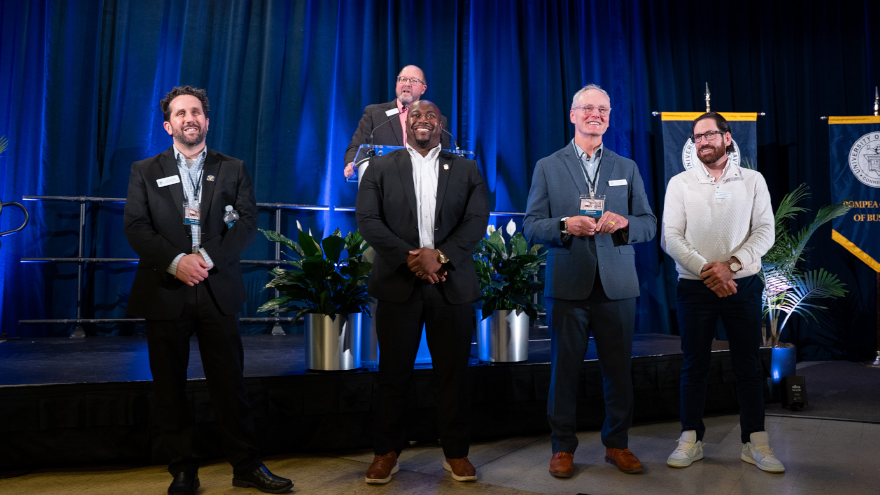
University News
New University-wide council will advance strategic partnerships, immersive student opportunities, and innovative research, supporting the University’s strategic plan the development of its pioneering Center for Innovation and Applied Technology.